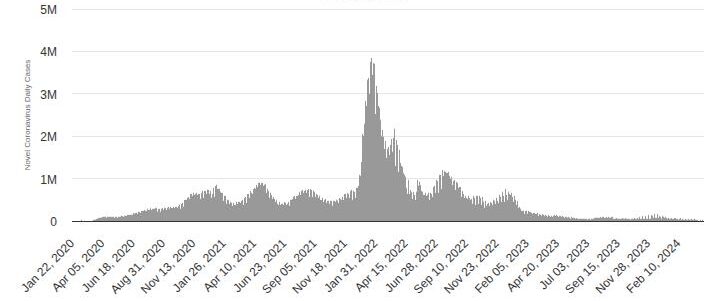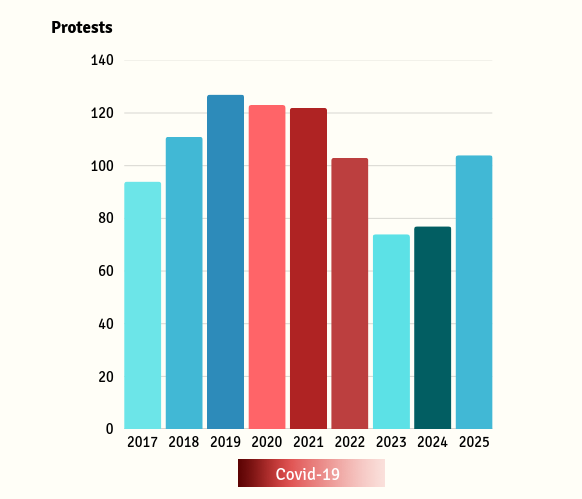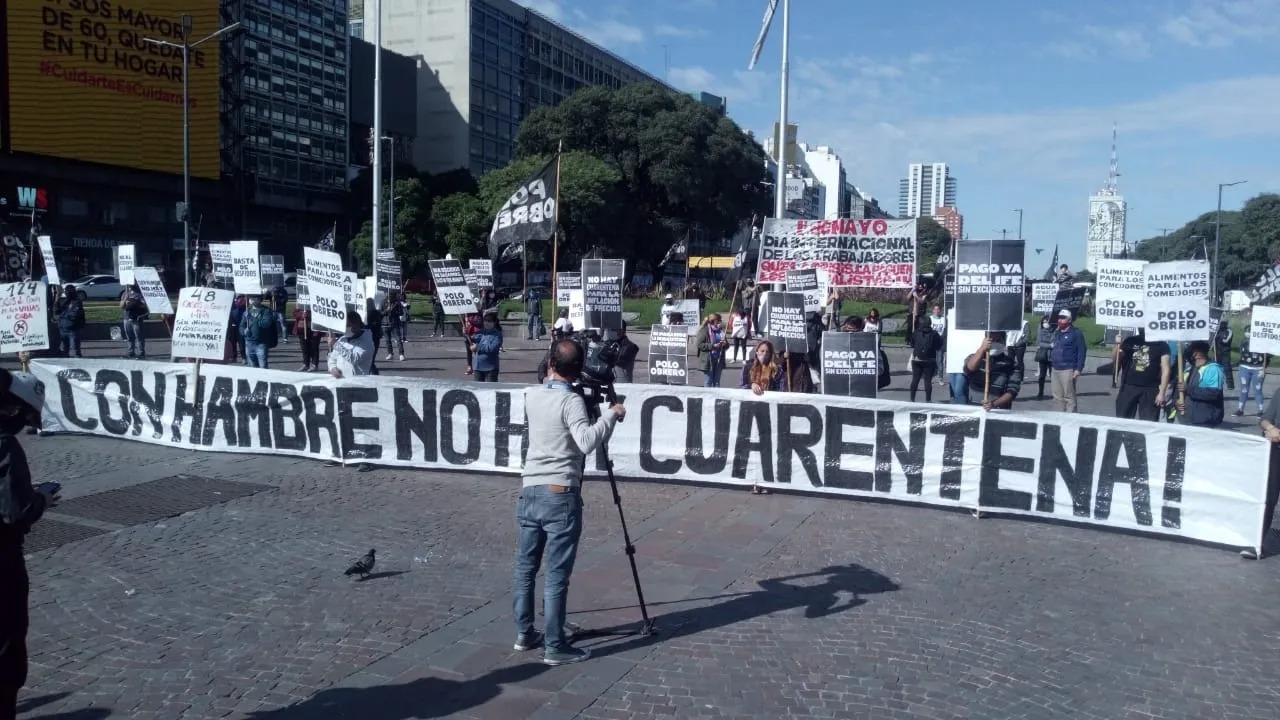In Madagascar, the same forces that helped put the current president Rajoelina in power are now turning against him and joining the protesters in the latest wave of demonstrations. The protesters have been demonstrating due to a collapsed electricity system and overall systemic instability. In Italy, one million people marched in support of Gaza, also motivated by the concerning rise in militaristic rhetoric from their government and others in Europe. The number of ongoing mass protests worldwide in 2025 has already surpassed that of 2024, and the year is not yet over. From Nepal to Indonesia and from Panama to Serbia, this year has certainly seen an increase in protests, but also against a backdrop of increased fascist politics from nation-states and intensified war efforts from the leaders of capitalist modernity.
This reminds us of the period before the Covid pandemic broke out, starting in 2019 and culminating in 2022. We were living in a period of social unrest due to an ever deepening capitalist crisis. The high-school students of Santiago jumped the turnstiles of the metro and sparked a wave of protests in Abya Yala spreading to Colombia and Ecuador but also as part of a bigger picture seen from Hong Kong, Algeria to the protests against the murder of George Floyd and the very youthful and new ecological struggles and massive feminist movments. The announcement of a coming pandemic and the following imposed quarantine was certainly a break for capitalist modernity. Whether it was planned or not, it offered a very convenient emptying of the very streets that in the months before had been burning with life and unrest. The increase in profits for online shopping and big pharma was just an added bonus.
Whether it was a convenient coincidence or a planned operation by shadowy powerful elites, it had a long lasting impact on the mobilizations of those years. In 2022 the number of protests decrease noticeably and between 2023 and 2024 the numbers go down even more and stay low. All the while the numbers of deaths and cases of Covid hit their peak. And interestingly enough this year, 2025 is now seeing a rise of protests world wide again. The latest waves of protests for Gaza which saw millions of peoples on the streets in dozens of cities around the world certainly causes a stir in the board rooms and think tanks of capitalist modernity. What will be their next convenient break or what will be their plan to repress social unrest this time around?
If we assume that there will be minds and pens analysing the surge of protest and social dissatisfaction that is developing then we can ask ourselves what can be done to avoid a similar situation as the one that emerged after Covid? It is a big price to pay as democratic forces to see a world wide movement of protest become pacified and locked into their homes for years. To loose 2 or 3 more years can mean many new wars and genocides committed against communities without the capacity of democratic forces to put up a fight and stop them. We don’t have time for that.
This poses some hard questions to the democratic forces. How do we develop the capacity to see the catastrophe while it is coming? And more importantly, how do we develop the capacity to recognize the danger and also act upon it to stop it before it happens? We have big questions to ask ourselves and new practices need to be developed to respond to them. To see a threat coming there has to be a strong capacity for analysis developed. And in this sense we have an advantage that we still have to make use of. We have millions of minds that are in this process already, but we also have to connect them to each other so that we can make use of our global collective capacity of understanding and analysing what is happening in our world. If we learn to think collectively we will have a stronger basis than any think tank or renowned scholar can have at any given moment.
But this is not enough. If we see the train coming but we don’t develop the capacity to act then it will only mean that we will see our own demise before it happens. More than a collective mind we also have to develop our collective and global capacity to act upon threats. Can we see a pattern of repression happening in South East Asia and can we prepare to face it in Abya Yala? We have to ask us these questions to be able to respond to the needs of our times.
Daily new COVID cases

Articles about protests on Wikipedia


